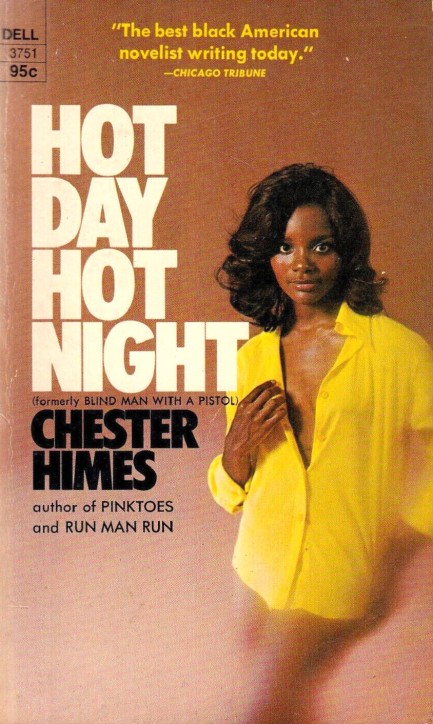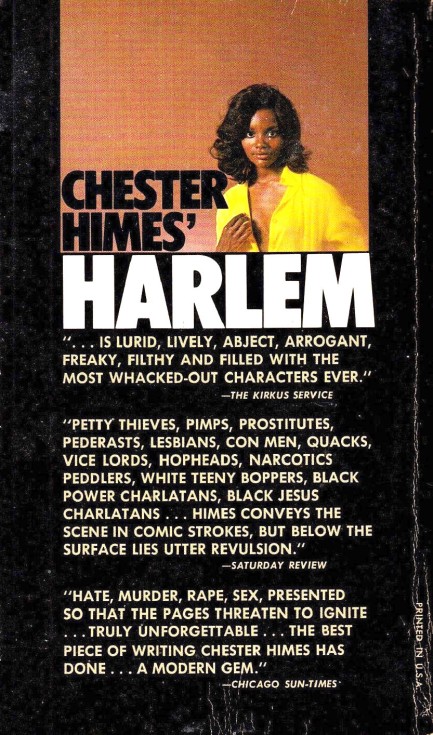| Vintage Pulp | Jul 13 2023 |

The climate there was always changed from what the rest of America knew.

Legendary author Chester Himes originally published Hot Day Hot Night in 1969 as Blind Man with a Pistol, with this Dell photocover edition featuring a beautiful model coming in 1970. Those two years are about as far forward as we're willing to go when it comes to fiction for our website (we often read newer books, but don't write about them). Elmore Leonard and Stanley Ellin likewise have pushed the upper boundary of our vintage perimeter, so Himes, of course, has received an exception too.
Hot Day Hot Night features a typically digressive Himes narrative that derives from the murder of a charlatan and a missing suitcase of cash. The dead scam artist, who called himself Doctor Mubuta, had convinced a ninety-something preacher named Mister Sam that an arcane formula could restore youth and virility. It sounds a bit crazy that anyone would believe that, but Himes puts it succinctly: It wasn't any harder to believe in rejuvenation than to believe equality was coming. It's also easier to believe when you have no idea what the ingredients in the concoction are, as revealed in this amusing exchange:
“What's that milky stuff floating around in it?”
“That's albumin, same stuff as is the base for semen.”
“What's semen?”
Mubuta doesn't answer that—smartly, we think. Other elements of the miracle mixture include baboon balls, bits of rabbit, eagle, and shellfish, some rooster feathers, and a “concupiscent eye.” Of course, this is total baloney, though we never find out what's really in the stew. Ingredients readily available around Harlem exclude eagles. Anyway, when the deal goes awry and Mubuta ends up stabbed to death, Himes' franchise detective duo Grave Digger Jones and Coffin Ed Johnson are drawn into the investigation in what is their final official appearance here in the eighth novel in Himes' Harlem Detective cycle (they also featured in 1993's posthumously published Plan B).
We've described Himes as a sort of literary walk on the wild side, and he's as uncompromising as ever all these entries into his Harlem series. It will be interesting to see how his work is regarded as the years pass. Himes is a mirror image of writers like Chandler and Spillane, working along identical literary lines, casting nearly every character in his books as criminals or victims. But the expectations on Himes were different, because—indisputably—rules change according to who's playing the game, and what color they are. We recommend this book, and everything by Himes.






































































